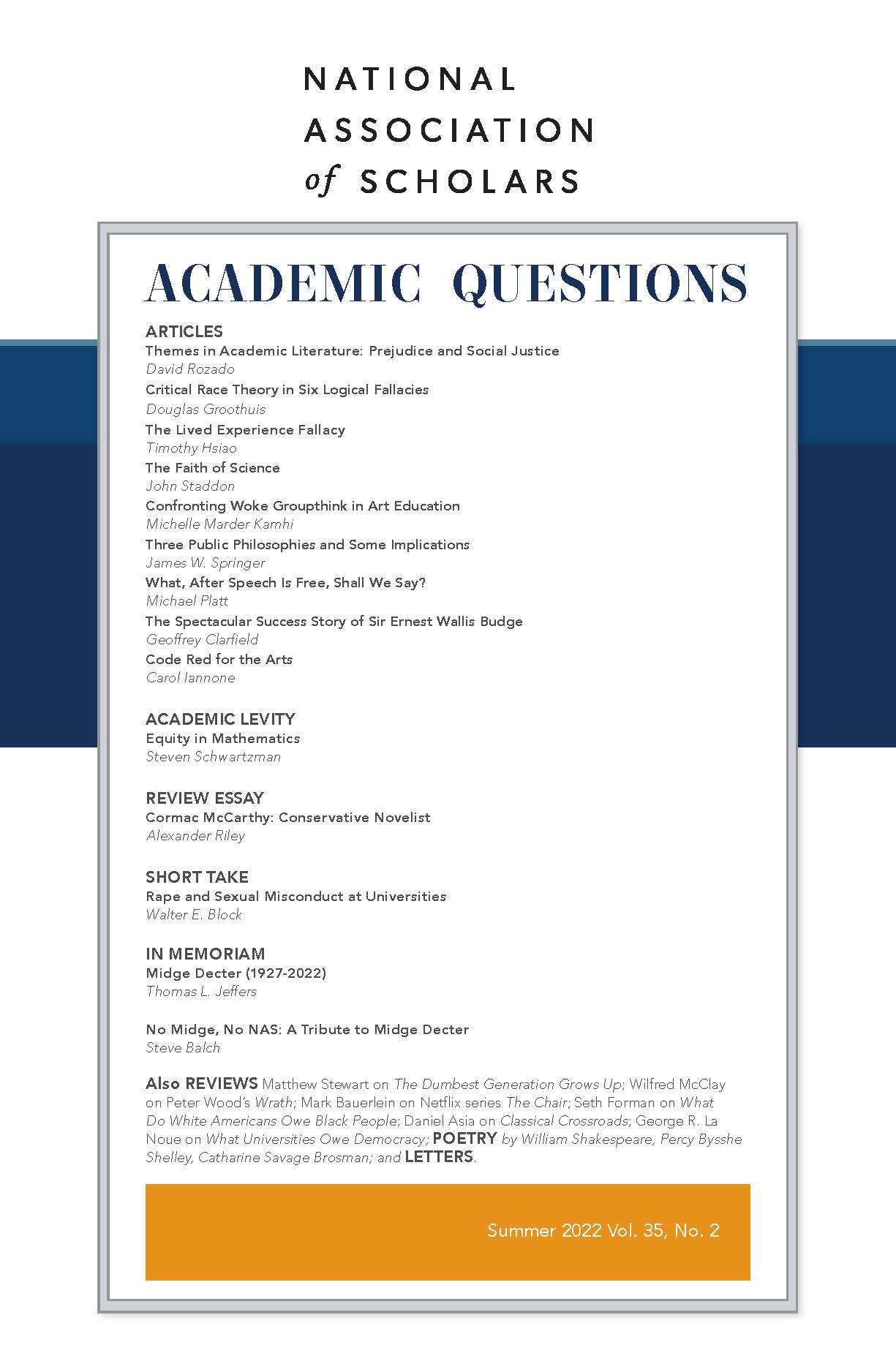Walter E. Block is Harold E. Wirth Eminent Scholar Endowed Chair and Professor of Economics at Loyola University in New Orleans; [email protected].
Apart from being evil, of course, sexual misconduct is a criminal behavior that is much more difficult to adjudicate than other types of rights violations. All too often the court finding rests on “he said, she said” challenges. Murder, carjacking, kidnapping, fraud, and arson are relatively easier to discern, since they often, although certainly not always, occur in public, not behind closed doors.
By contrast, determining whether personal crimes such as harassment have occurred are fraught with danger. Were both the assailant and the victim drunk at the time? If so, just how inebriated? Is the claim to have been sexually harassed vitiated if the woman was drunk, but not the man? Does this mean the sexual act was not consensual? Are there degrees of consensuality? “No” of course means “no.” But what if actions say “yes” accompanied by a feeble verbal negative. Does it matter if the reverse occurs: a verbal “yes” and a physical “no”? What if the woman changes her mind at the very point of male ejaculation? Does this count? Can a man rape his wife? Without a doubt he can. But in no other context can this question even arise. It thus cannot be denied that this sector of the law constitutes a minefield of ambiguity and obfuscation rarely observed in other cases if criminal wrongdoing.
With all of these pitfalls, we need our best and brightest legal minds on the job to ferret out guilt or innocence in such cases. We want our first team in the trenches, not the bench sitters.
Why, then, is this crucially important task undertaken by university faculty members? What specialization in this field is attained by a dean or a provost who started out their careers as professors of physics or literature? The most likely answer to this question is “zero.” If a murder, God forbid, occurs on campus, active or former professors of chemistry and economics are not brought in to take charge of the proceedings. The same applies to fraud, theft, or other felonies. Why entrust scholars with Ph.D. degrees in biology or philosophy with the vital task of ruling in cases of alleged rape or sexual misconduct?
Other important institutions in society do not demonstrate such a great degree of hubris. If a female nurse accuses a male doctor in a hospital of such behavior, the usual forces of law and order make the relevant determinations. The same occurs in fire departments, grocery stores, steel mills, air carriers—indeed, all throughout society. It is not the leaders of these institutions who are set up as judges and juries. Rather, we rely upon specialists in this field, actual judges, lawyers, detectives, and police forces.
Further, if a rape does occur in a college dormitory, or anywhere else for that matter, the proper punishment is time behind bars, something beyond the ken of university administrators, not mere expulsion from school. They come to this, moreover, with particular ill grace: they are the ones who insisted upon integrating male and female students in the same housing units, only to subsequently whine about the alleged “rape culture.”
Once upon a time, the criterion for settling these sorts of cases was the one widely employed in court: the defendant could have a lawyer, the right to confront complainants, etc. But then, with the advent of the infamous U.S. Department of Education Title IX “Dear Colleague” letter in 2011, these civilized protections for the defendant were withdrawn. No longer was the policy of “innocent until proven guilty” the guiding principle; instead, “the preponderance of the evidence” criterion was imposed. Now, men are being treated unfairly in case after case, and hundreds have filed suit seeking relief from the courts.
What happened to the presumption of innocence which was bequeathed to us from the beginnings of Western civilization? It went away along with the right to question the accuser. Not only were these show trials placed in the hands of people with Ph.Ds. in irrelevant disciplines patently incapable of executing them, but they functioned in direct opposition to legal principles developed by experts in the field over centuries.
Then along came Saint Betsy de Vos as Secretary of Education, who partially righted these wrongs. She rescinded the unjust Title IX “Dear Colleague” strictures. Unhappily, she did not banish these hearings from the institutions of higher learning. But at least she injected into them a modicum of civilized law and common sense.
Whereupon returned the legal deluge under the Biden Administration, reinstituting the “Dear Colleague” injustices. We weep for the victims of the outrages of rape and sexual misconduct. But, also, for those unfairly accused of these crimes.
Image: Kat Wilcox, Public Domain













